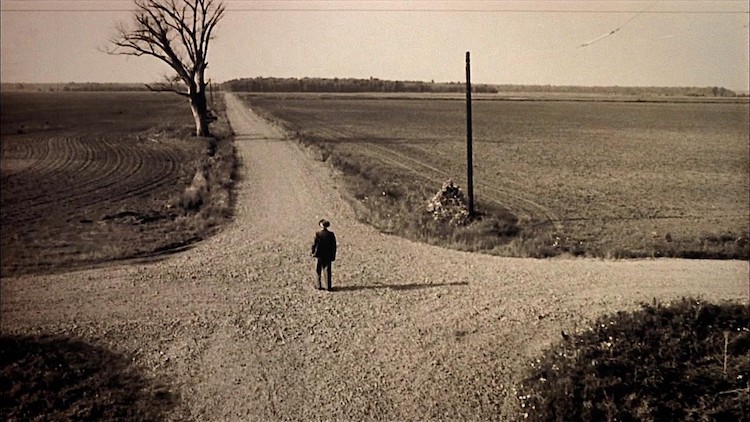
Most of us would believe we’re thoughtful people. While some of us may recognize our impulsiveness (or at least have friends to point it out), we generally think we’ve got a decent head on our shoulders. We’re people who know and are pretty certain about what we believe to be true.
And I get that. I myself feel that way. And still, I ponder. If you actually listened to David Foster Wallace’s This is Water (I posted it a few days ago), you would see that self-reflection. I mentioned a while back too a poem I wrote titled I Only Know Me where the point was the same – we are all quite self-centered. But it’s not our fault – we only really have the one perspective. Sure, we can learn from and take the advisement of others, but in the end, it’s what we do with it that forms our lives.
Along those lines, I’ve encountered on many occasions the rejection of Christianity – a faith that over years of study I am even more so convinced is true. And that rejection usually comes in the form of the straw man being held up to say “See? It can’t be true because….” Because Christians have done bad things in the past. Because they’ve been slave-holders. Because they’ve hated homosexuals. Because they’ve turned their backs on the poor. Because they vote for Trump.
Or maybe the straw man is not so much that they’re bad, but more that they’re ignorant. They don’t believe in science. They’re “anti-education.” They vote for Trump.
Or it’s the part about blaming God for the ills of the world. “Your God is so good? Then why evil? Why suffering?”
There’s always that “slam dunk, gotcha” approach in their minds. They’re convinced they have the surefire, unanswerable refutation of the Christian faith, while ironically believing that literal centuries of Christian and philosophical scholarship has never answered their challenges.
It really just comes down to what they’ve decided they’re going to believe no matter what facts are presented. Because if one is shown the outright evidence for Christianity and still rejects it, there isn’t much one can do to reason a person into believing otherwise.
But don’t worry — I recognize that the same goes for me. If I am shown evidence against Christianity, I have to confront that. I have to go to the books. I have to read the philosophers and scientists and scholars. I have to give it a fair hearing and make up my mind based on the evidence.
We must recognize that we all bring our preconceptions. We all have a certain amount of confidence in the veracity of the evidence on which we base our faith, be it a faith in a divine being, or faith in our humanity. The question really is, who has the firmest foundation for such faith?
I like the title of Greg Koukl’s book, The Story of Reality. I like the book, but the title packs in something more – something about which I’ve heard Koukl himself speak, so I get it. There are a lot of different worldviews. There are a lot of ways to look at what’s happening around us and why things are the way they are. But there’s one view that best explains it all – that best explains reality itself. A view that does a better job accounting for everything we see, hear, and experience than anything else.
I see that in Christianity. I see a world that couldn’t possibly come into existence out of nothing (and this, according to science), and then I hear that it was spoken into existence by a creator. I see a world that’s broken and destructive to those who live here; that tears us down and shatters us; that pits us against each other and foments hatred among peoples and nations; and then I hear that we rejected the creator and decided to run things on our own (and you should know how I feel about our abilities to govern ourselves (not to mention the affairs of the rest of the world)).
But I also see a world where wonderful and peace-loving people care; where people create beautiful art and music, who write uplifting and interesting books; and I hear that we are made in the creator’s image – with elements of his creativity, with a sense of his love, with a heart that cares for the poor and knows what is right (all traits shared even by those who don’t believe in him). And I see that we all have this general sense of what is right and what is wrong – that there is a standard that is outside of us, that we know applies to us all; and I hear that the creator is a lawgiver who has also given each of us a conscience.
And now I look to the future, because I believe that if we continue as we are, we will never reach that moment where we all just get it and get along. We’re fooling ourselves if we think that we will be able to overcome our own selfishnesses and prejudices so that we may live some kind of utopian heaven-like existence. There’s just no evidence for that. To the contrary, the evidence works against us. Even as the world gets smaller, the space between us grows so much greater.
But I hear that the creator has made a way to set things right. That he has done something to reconcile himself to us, despite our rejection. That he has paid a price to make it possible to come again into fellowship with him, and that if we accept his gift, we can know his true peace and love, even in a world that ambushes us and tears us down.
That’s how I see the reality – that because the things that explain so much of what we’re going through in the present are covered by the Christian faith, I can only extrapolate that the answer comes from the same place.
One last point here: I can point to a lot of what I think is fairly convincing circumstantial evidence for my beliefs (some of that in what I wrote above above). But the apostle Paul goes to something even more concrete – something for which he was willing to (and did) die. He writes that if there was no resurrection, we are all the more to be pitied. Quite simply put, if the resurrection of Jesus Christ didn’t happen, our faith is meaningless, no matter how strongly we wish it to be true. But if, on the other hand, it really is a true, historical event, we have all the more a reason for the hope we have. At the same time then, that leaves those who do not believe at a point where they must decide. What I’m asking more than anything is that they give it that serious look. That they ask the honest questions. Not that they do it out of lip-service to their preconceived answers. And not that they choose the worst of the answers either (“Christianity” has no shortage of buffoons and charlatans who, once again, will give anyone an excuse to reject it). We should all want to hear the arguments of the other side from those who have given it the most thought and study.
To anyone who’s read this far, throw away the straw men and start looking for something of substance. And if you have any questions, let me know.

